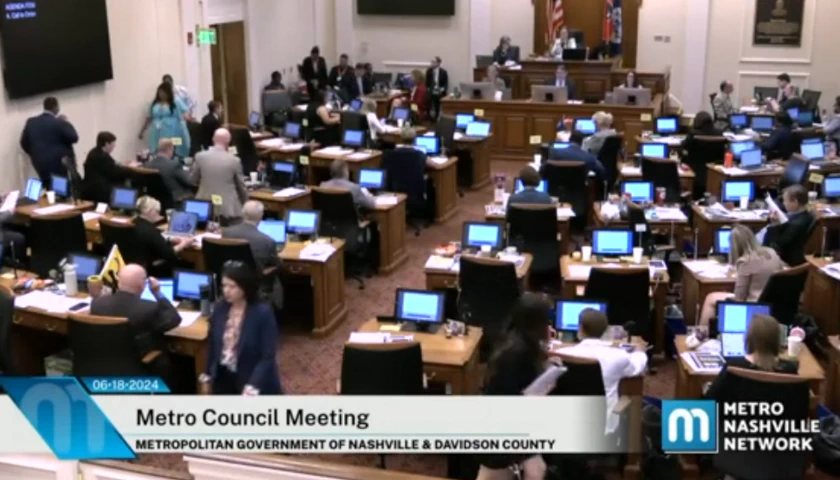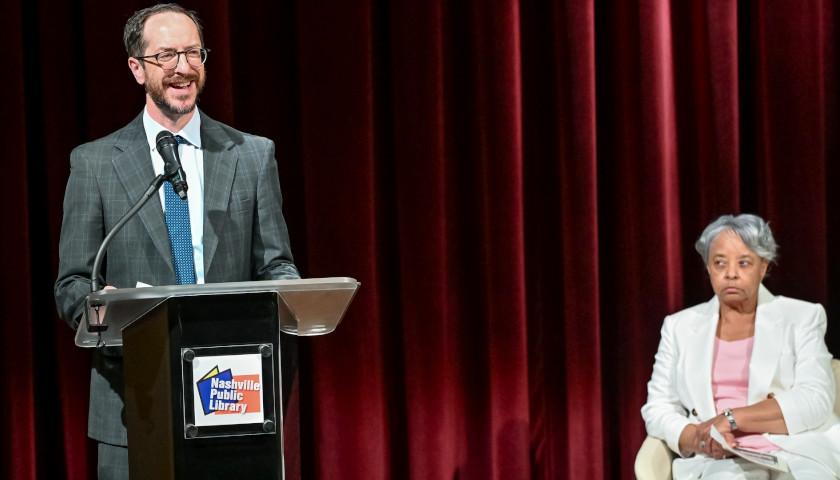Proponents of Governor Bill Haslam’s fuel tax increase claim it is actually a tax CUT thanks to reductions in a couple of large corporate taxes, like the Franchise & Excise tax. Cutting taxes on businesses to create more job growth while we have a $2 billion surplus is a great idea…but you don’t have to increase taxes elsewhere to justify it. As Nike ads used to proclaim: “Just DO It!!”
The claim that a large tax increase on drivers in Tennessee with a slight reduction of taxes on food is a “net cut” because it is combined with unrelated cuts that benefit a few of the Governor’s cronies is the kind of misrepresentation that“fuels” a legitimate distrust of government. The tax INCREASES on fuel far surpass the CUTS in the sales tax on food. It’s not even close. Muddying the water with corporate tax cuts that benefit a few doesn’t change that truth.
As the Haslam IMPROVE Act currently stands, it is a $345 million tax increase. Approximately $188 million will come from the increase in the gasoline tax; another $100 million will be generated by the increased diesel tax; and finally, about $57 million will be collected in the form or other tax increases and fees. Bottom line? Tennesseans will pay $345 million MORE each year if the tax increase passes.
Where are the tax cuts that balance against that increased drain from our wallets at gas stations in Tennessee? The plan cuts a penny from the sales tax on food, which is a total tax cut of about $125 million. (The advocates of the fuel tax increase ignore the impact on the cost of goods at grocery stores that are driven in part by transportation costs…with most grocery items being delivered by diesel fueled trucks. So unless the trucking companies that deliver food to the stores plan to eat the increased fuel costs rather than passing them along to their customers, Tennessee shoppers can expect to see every item in the grocery store — and anywhere else they buy products — increase in price. The promised cut will be taken back in some amount by the increased prices, something proponents of the tax increase want to ignore.)
Even with Common Core math it is pretty simple to calculate the impact of the Haslam tax scheme on working men and women in Tennessee. $345 million in tax increases minus $125 million in cuts leaves a TAX INCREASE of $220 million. Per year. Over the next ten years Tennessee families will pay over $2.2 BILLION in HIGHER, NOT LOWER, taxes.
Manipulating the numbers with tax cuts that have no real benefit to the average Tennessean doesn’t change the truth, it only obscures it. But even without a careful detailed review of the numbers it is clear the Governor’s plan raises taxes. Otherwise, how can they INCREASE spending $300 MILLION a year in new road funding if they are really CUTTING taxes???
– – –
Steve Gill is a conservative media and political strategist and former nationally syndicated talk radio host.






If businesses will pass along an increase in the fuel tax, as you suggest, won’t they also pass along corporate income tax cuts that you don’t mention?
I am disgusted with this new attempt to fool taxpayers by relabeling the Governor’s Improve (the State coffers only) Act which raises taxes as a tax decrease bill. This new nomenclature is widely being used by a certain Senate Republican running for Governor. We will be getting rid of a TN tax and spend a lot more Governor-we don’t need another one. I do not care what DC Grover says about it being budget neutral. The 2 billion dollar surplus and fact that we are already overtaxed didn’t factor into his equation. He didn’t consider the viable alternatives proposed by real conservatives which negated a need to raise taxes. Nor, who will really benefit from a gas tax increase, and I don’t mean the highways. Neither did Grover look at the increased costs of deliverables if the gas/diesel tax is increased. Any decrease in the grocery tax will quickly evaporate. I relayed the entire circumstances to Newt Gingrich and his response, especially about Grover’s opinion was “Weird”. This gas tax increase is not in the best interest of TN taxpayers, especially those working hard just to make ends meet. But then of course our learned TN legislators know what is best for us.